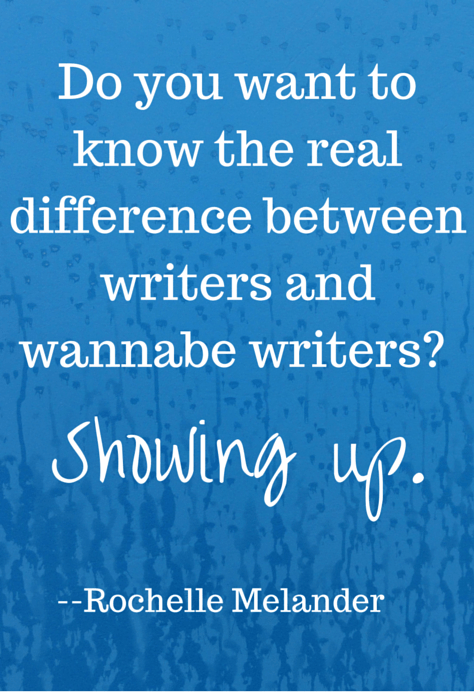#WritersRead: Writing Inspiration Books
August 16, 2016
Note From Rochelle
Dear Writers,
Last week I called for recommendations from you about your favorite periodicals. Two of you responded and shared your favorite writing magazines—Thank You!
But I need more ideas! What magazines do you read and why? Popular Science, Glamour, Real Simple? Send me your nomination along with 50-100 words about the value you’ve found in the periodical. Include your name and a link to your website or social media account. If I choose to use your piece in the post, I’ll let you know.
Today’s tip shares three of my favorite writing inspiration books. Enjoy!
Happy Writing!
Rochelle, the Write Now! Coach

#WritersRead:
Writing Inspiration Books
by Rochelle Melander
It’s challenging to write about writing—because the best advice I can give is also fairly short: write. Stop whining, worrying, and procrastinating! Write more than you talk about writing. Get off Facebook, turn off your phone, and write! Stop pouring your energy into long emails, texts, and plans. Write your book.
Throughout the coming year, I’ll be offering more practical advice on why and how to write your book. Next week, I’ll announce the schedule for my fall Write-A-Thon Class—which will be packed full of practical information on how to write a book and the support you need to do it. But for now, I leave you with my recommendations for books to inspire you to do the one thing you need to do: WRITE.
Walking on Water: Reflections on Faith and Art by Madeleine L’Engle
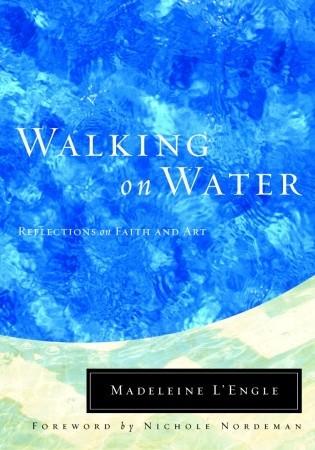 In my late twenties, I discovered Madeleine L’Engle’s book, Walking on Water: Reflections on Faith and Art. I’d been a fan of her Newbery Award-winning book A Wrinkle in Time since I was seven. In Walking on Water, I discovered the writer behind the book I had loved for so long. L’Engle preached the benefits of being time. She wrote:
In my late twenties, I discovered Madeleine L’Engle’s book, Walking on Water: Reflections on Faith and Art. I’d been a fan of her Newbery Award-winning book A Wrinkle in Time since I was seven. In Walking on Water, I discovered the writer behind the book I had loved for so long. L’Engle preached the benefits of being time. She wrote:
I sit on my favorite rock, looking over the brook, to take time away from the busy-ness, time to be. I’ve long since stopped feeling guilty about taking being time, it’s something we all need for our spiritual health, and often we don’t take enough of it. (p. 12)
I was raised to work hard and be productive. I worried about wasting time and, worse yet, wasting my life. To that worry, L’Engle wrote:
But being time is never wasted time. When we are being, not only are we collaborating with chronological time, but we are touching on kairos, and are freed from the normal restrictions of time. . . .
Canon Tallis says that his secretary does not understand that when he is thinking, he is working: she thinks he is wasting time. But thinking time is not wasted time. (p. 97)
If You Want to Write by Brenda Ueland
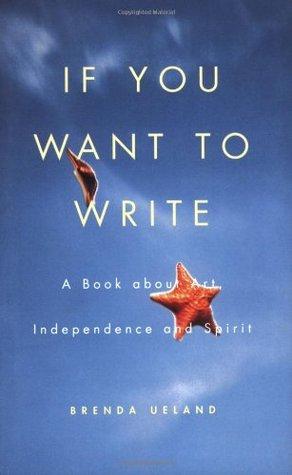 Ueland begins her book by telling the reader that, “Everyone is talented, original and has something important to say.” She goes on to talk about the “joyful, imaginative, impassioned,” creative energy that each of us is born with and loses at a very young age. Why do we lose it? Because we do not respect it—and so we do not nurture it in ourselves or others.
Ueland begins her book by telling the reader that, “Everyone is talented, original and has something important to say.” She goes on to talk about the “joyful, imaginative, impassioned,” creative energy that each of us is born with and loses at a very young age. Why do we lose it? Because we do not respect it—and so we do not nurture it in ourselves or others.
The solution is both brilliant and simple. Nurture your creativity. Take the time to immerse yourself in your art. Surround yourself with people who will encourage you and dump those who criticize you. Here’s how Ueland puts it:
Remember these things. Work with all your intelligence and love. Work freely and rollickingly as though they were talking to a friend who loves you. Mentally (at least three or four times a day) thumb your nose at all know-it-alls, jeerers. critics, doubters. (p. 8)
Bird by Bird: Some Instructions on Writing and Life by Anne Lamott
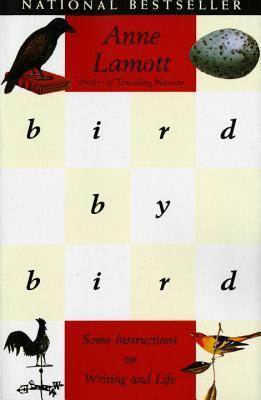 When I was just starting my writing career, I happened upon Anne Lamott’s Bird by Bird: Some Instructions on Writing and Life and this advice:
When I was just starting my writing career, I happened upon Anne Lamott’s Bird by Bird: Some Instructions on Writing and Life and this advice:
Perfection is the voice of the oppressor, the enemy of the people. It will keep you cramped and insane your whole life, and it is the main obstacle between you and a sh***y first draft. —Anne Lamott, Bird by Bird, p. 28
A few years ago, I started running. I am slow, but I like the challenge. I’ve noticed that most runners do not agonize over each step, wondering if they are doing it right. That would be silly. No one can analyze a race and run it at the same time. Runners put one foot in front of another, moving quickly (or slowly, in my case) toward their goal.
Writers can learn from runners. Don’t think so much. Just move forward. Get the words down on paper. You can fix it later.
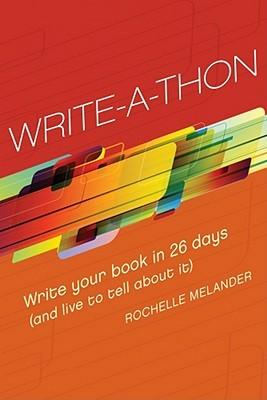 I’ll end with a quote from my book, Write-A-Thon: Write Your Book in 26 Days (And Live to Tell About It):
I’ll end with a quote from my book, Write-A-Thon: Write Your Book in 26 Days (And Live to Tell About It):
Do you want to know the read difference between writers and wannabe writers? Showing up.
—Rochelle Melander
